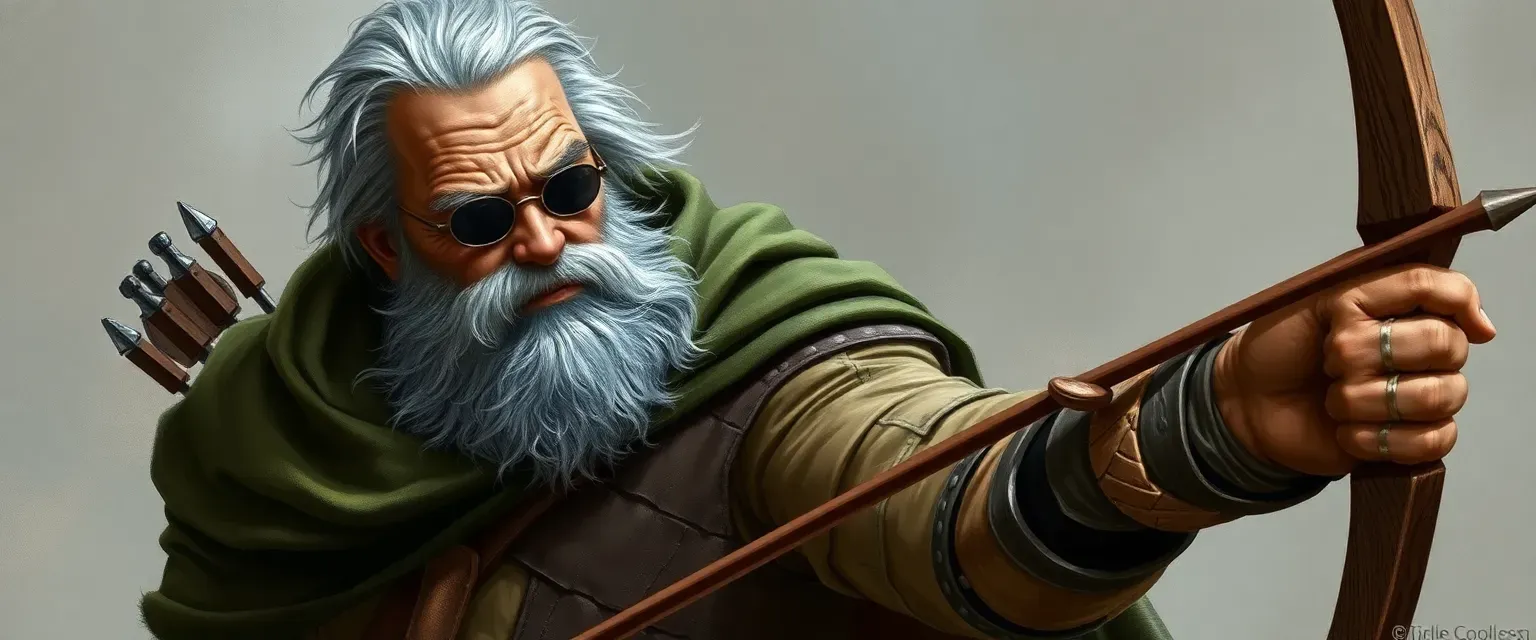Stribor, known throughout the village as the honest and hardworking hunter, stands tall and broad-shouldered, a testament to years spent in the wilds. His age, nearing fifty, is etched into the lines of his weathered face, a face that once beheld the world with keen eyes, now shrouded in the darkness of blindness. His hair, once dark as the midnight sky, has been streaked with the silver of his trials. Stribor's attire reflects his life's work; a worn leather tunic, patched in places, and a cloak that has seen many a season, its color faded to a dull green. Around his waist, a simple belt holds a quiver, always stocked with arrows, each fletched with precision, a testament to his skill even in his blindness.
The tragedy that befell Stribor was the sacrifice of his daughter to an Old Pagan God, a ritual the village believed necessary to appease the ancient deity. Driven by a father's love, Stribor embarked on a perilous journey to rescue her. In his desperation, he struck a bargain with a river nymph, trading his sight for safe passage across treacherous waters. Now, navigating the world through sound and touch, Stribor's resolve has not wavered. His blindness has heightened his other senses, making him an even more formidable hunter, his arrows finding their mark guided by the whispers of the wind.
Stribor's life is a tapestry of conflict; the struggle against the supernatural forces that threaten his daughter, the internal battle with his own limitations, and the challenge of navigating a world he can no longer see. Yet, it is his unwavering determination and the love for his child that propel him forward, a beacon in the darkness of his world. His journey is fraught with danger, yet Stribor's unique trait, a soft-spoken yet firm voice that commands respect and instills hope, echoes through the forests as he seeks to reclaim what was unjustly taken from him.
